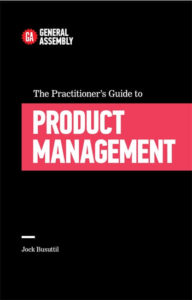
My boss wants to set me an OKR on revenue growth. Is this right?
I’m asked questions about product management from time to time. Here’s one I’ve answered recently:
Hi Jock,
My boss wants to set me a personal OKR [objective and key result] to achieve revenue growth through demonstrable product improvements.
Can you think of any reasons why I should push back on a suggestion like this?
G
Read on for my reply.
Hi G,
Thanks for getting in touch. It sounds like your boss may be confusing OKRs with a ‘management by objective’ approach.
A bit about OKRs #
OKRs should be focused on achieving an outcome, a change that positively affects people’s lives. Revenue is not an outcome, it’s a by-product of transacting business and bears little correlation to whether you’re improving people’s lives or not (despite how your boss’s remuneration may be structured).
OKRs are more typically used by teams rather than individuals, though this is by no means a hard and fast rule. OKRs should be set by the team, not by their bosses.
A team should understand what outcome is the current focus for the quarter. If the whole organisation is bought into OKRs and is doing them well, then there should be transparency about what matters most that quarter from top to bottom and bottom to top.
So when setting their OKRs, the team is simply stating how they’re going to contribute towards that goal for the quarter through work that is in their control to deliver. OKRs should therefore be naturally aligned across the organisation, providing the organisation is united in their particular focus each quarter.
I pulled together some helpful books and articles about OKRs, their challenges and how to set them up well in a recent PRODUCTHEAD newsletter. Take a look, then perhaps talk your boss through it.
Revenue is a rubbish choice of metric #
More revenue doesn’t necessarily equate to moving towards the company / product vision or serving the needs of your users. You can have tons of revenue and still make a loss.
The other side of this is that financial targets are the ultimate vanity metric. There are two easy ways to spot a vanity metric:
- They’re not easily actionable: if the numbers go down (or up) and you want to change that, is it immediately obvious what action you need to take?
- They’re focused on outputs, not outcomes (see above): so by definition, vanity metrics make terrible OKRs.
Try to find a leading, not a lagging metric #
Not only that, but financial targets are almost always lagging metrics. They tell you what has happened, not what’s (probably) going to happen.
The length of your sales cycle (from initial lead to sale of your product) will determine how much lead time is required to influence your financial performance. By the time you’ve measured the revenue of the quarter just gone, it’s going to take at least as long as your sales cycle again to see any measurable change in revenue as a result of you doing things differently.
Instead, try to find leading metrics that help you to predict future performance.
What’s the behaviour you want to encourage? #
Financial targets also potentially establish an incentive that promotes undesirable / unintended behaviour. When there’s pressure to hit monthly, quarterly, annual financial targets, the focus can be diverted from doing the right things for your users (a longer-term view), to transacting a certain amount of cash (a short-term view). (“Close the deal at any cost!”)
Also, unless you have full responsibility for pricing, the sales channel and sales team, you’re not necessarily in direct control of the things that drive how much revenue you make. Having a target that you can’t directly make progress towards is tremendously frustrating.
It’s understandable why revenue targets are beloved by anyone from a sales background, because those are usually the only targets they’ve ever known. While you can’t ignore financial numbers entirely, there are usually much better choices of metric when it comes to measuring the performance of your product and your team.
Better personal targets for product leaders #
Instead, better targets for you as a product leader would be aligned with the product strategy and team strategy. Get those right and the financials will (usually) follow.
So to circle round and hopefully give you some better personal goals as a product leader, think about the following:
- How you can better serve the needs of your team (and what does that look like when you’re succeeding)?
- How you can help the company be better at product (ditto)?
If you excel in both those areas, then you’re not going to be far off a decent level of performance.
Cheers,
Jock


Leave a Reply